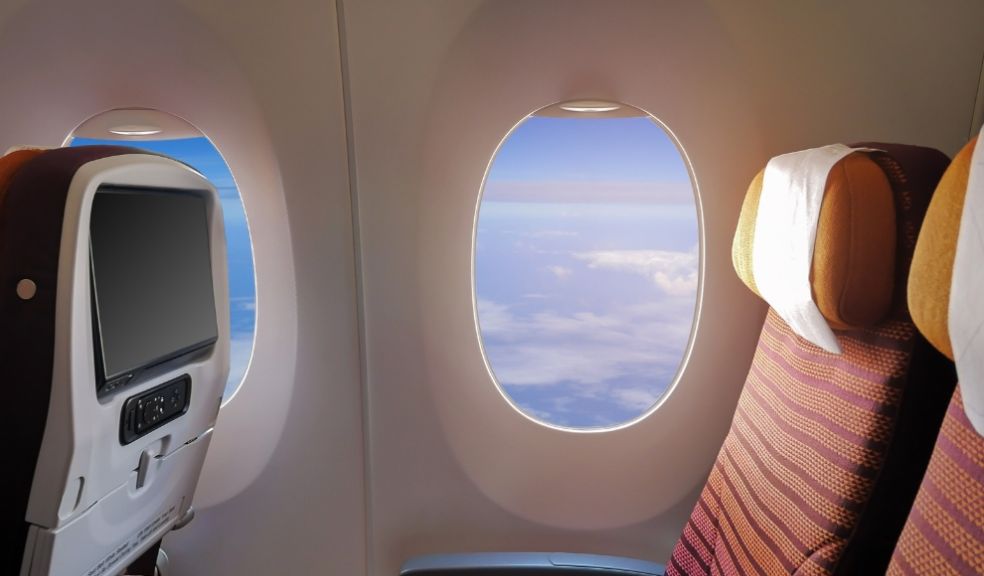
Experts warn about the dangers of ‘raw-dogging’ flights
Have you ever wanted to take on a long-haul flight with no films, no music, no sleep, and no water? No, we haven't either.
However, 'raw-dogging' - where passengers spend their full-time mid-air simply staring ahead without any distractions, entertainment or even hydration - is the latest travel trend taking TikTok by storm.
Coined as a challenge to show toughness, athletes such as Erling Haaland have joined in on the trend, and while some claim the challenge strengthens the 'power of the mind'; the reality is very different.
Leading sleep expert and CEO of Happy Beds, Rex Isap, has warned travellers against 'raw-dogging' their next flight, as it could take up to five days to recover from just one flight, meaning you could lose out on valuable days on your trip. Not only that, but the act of 'raw dogging', if you're a frequent traveller, could have a significant negative impact on your long-term health.
Raw-dogging flights could disrupt your circadian rhythm and impact sleep for days
It would be easy to presume that no screen time and giving yourself time to recharge mentally may help you sleep once you're off your flight, but one of the most significant issues with 'raw-dogging' flights is its impact on your circadian rhythm.
Your circadian rhythm is your body's 24-hour clock that regulates the sleep-wake cycle. It's essential for maintaining your body's sleep patterns, hormone release, and overall well-being. When you deprive yourself of sleep on a long-haul flight by stubbornly staring ahead and avoiding relaxation, you throw your body clock into chaos. This, combined with the already turbulent effects that jet lag has on our sleep schedule can make it hard for your body clock to recover from in the days after.
For those of you taking red-eye flights (flights that depart your native country at night, and arrive at your destination in the morning), the time zone in your destination can make it impossible to catch up on missed sleep, potentially leaving you moody and restless for the duration of your trip.
Furthermore, the blue light emitted by aeroplane screens - whether you're paying attention to them or not - and overhead lighting already puts your circadian rhythm under pressure by tricking your body into staying alert. Add to this, the stress of 'raw-dogging' it - no naps, no distractions, and no mental breaks - could further cause more issues for future sleep.
Rex Isap notes that the consistent act of 'raw-dogging' flights puts you at risk of circadian rhythm disorder, where your sleep patterns are misaligned with the day-night cycle. Symptoms include insomnia, excessive daytime fatigue, mood instability, and cognitive impairment, all of which can linger long after your flight lands.
Extreme dehydration thanks to 'raw-dogging' can increase the chance of blood clots on flights
Another serious risk of 'raw-dogging' is dehydration. Airplane cabins are notorious for their low humidity levels, which can dry out skin, eyes, and mucous membranes which is why it's recommended to increase hydration when on planes. When you avoid drinking water for hours on end, these effects become even more pronounced.
Studies have found that long-haul flights pose a genuine threat of dehydration because airline cabins consist of dry, recirculated, and cool air, which is maintained at a lower pressure than that found at sea level. This can put you at risk of deep vein thrombosis, a condition that occurs when a blood clot forms in a deep vein. The danger of these clots lies in their potential to travel through the bloodstream and block vital arteries.
Symptoms of DVT include swelling, pain, and redness in the affected area. Happy Beds recommend moving regularly, staying hydrated, and wearing compression socks to avoid the severe consequences that 'raw-dogging' can have on your health.
'Raw-dogging' can impact your ability to concentrate on your trip
Lastly, the mental toll of 'raw-dogging' a flight is nothing to underestimate. Hours of staring blankly at the back of a seat or the flight map might sound like a minimalist challenge, but it's also a form of sensory deprivation that can lead to mental exhaustion. Our brains need stimulation to stay sharp, and when you deny yourself even basic entertainment or distractions, you're likely to feel increasingly irritable, anxious, and mentally drained.
This kind of mental fatigue doesn't just ruin the flight—it can affect your entire trip. You might find yourself more prone to jet lag, struggling to adjust to new time zones, and less able to enjoy the experiences you travelled for in the first place.
The long-term impact? A weakened ability to concentrate and make decisions, potentially impacting your performance at work or in your personal life after your trip.
In short, while 'raw-dogging' flights might be trending on TikTok, it's a trend that can lead to health issues both in the short term and long after your journey ends. Instead of subjecting your body and mind to unnecessary strain, prioritise your health and well-being because no challenge is worth risking your trip, or your health, over.
















